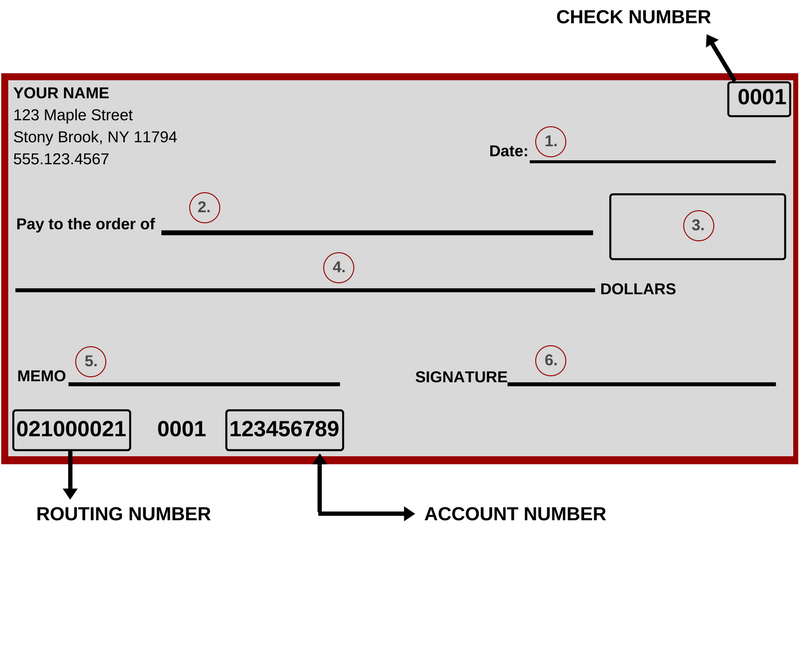Skip Navigation
Search
Dealing With Checks
Checks are not as widely used as they once were. So, what are they? What can they be used for?
- Checks are used for things that you wouldn't normally give your credit/debit card number out for and is an alternative for paying cash.
- One of the most common check payments for college students is rent payments. Sometimes, the owner of the house/apartment will want checks as payment, plus it serves as proof of payment.
- Most of the time, students' interaction with checks is limited to paychecks
How to Write a Check

- Write the date. A check cannot be cashed prior to the date written here.
- Indicate who the check is going to. If you are paying a bill, the bill will usually specify "Make checks payable to...". If you are confused, it never hurts to ask.
- Write the numerical amount of the check in the box.
- Write the words of the amount in step 3. For example, if you are writing a check in the amount of $43.98, you would write "Forty-three and 98/100". If there is any space remaining on the line, draw a line through that space. This prevents anyone from altering the amount.
- This is optional but it can be useful to make a note of why you were writing the check.
- Sign the check. The check is not valid until you do so.
CHECK NUMBER: Allows you to easily identify a check in a registry, on your statement, etc.
ROUTING NUMBER: Identifies your bank and allows financial institutions process the check
ACCOUNT NUMBER: Identifies your account number with the bank
Endorsing a Check
Blank Endorsement
- When you sign the back of the check and that's all
- Easiest but most dangerous
- Only do this if you're at the bank getting ready to deposit the check
Restrictive Endorsement
- Signing and including your account number with your endorsement
Example: "For deposit only to account #####" OR "For deposit only to account of [your name]
This restricts the check from being deposited to an account other than the one you specify.
No Endorsement
- Some banks don't not require you to endorse the check before depositing it
- Keeps information private
Additional Information
- Checks have the benefit of a paper trail - many banks provide an image of your written checks as part of your monthly statement.
- Checks you write include your account number, name and address - don't leave them laying around & only give them to reputable people/business.
- If you don't keep track of the checks you write, you could overdraw your account and have to pay a "bounced check" fee.
